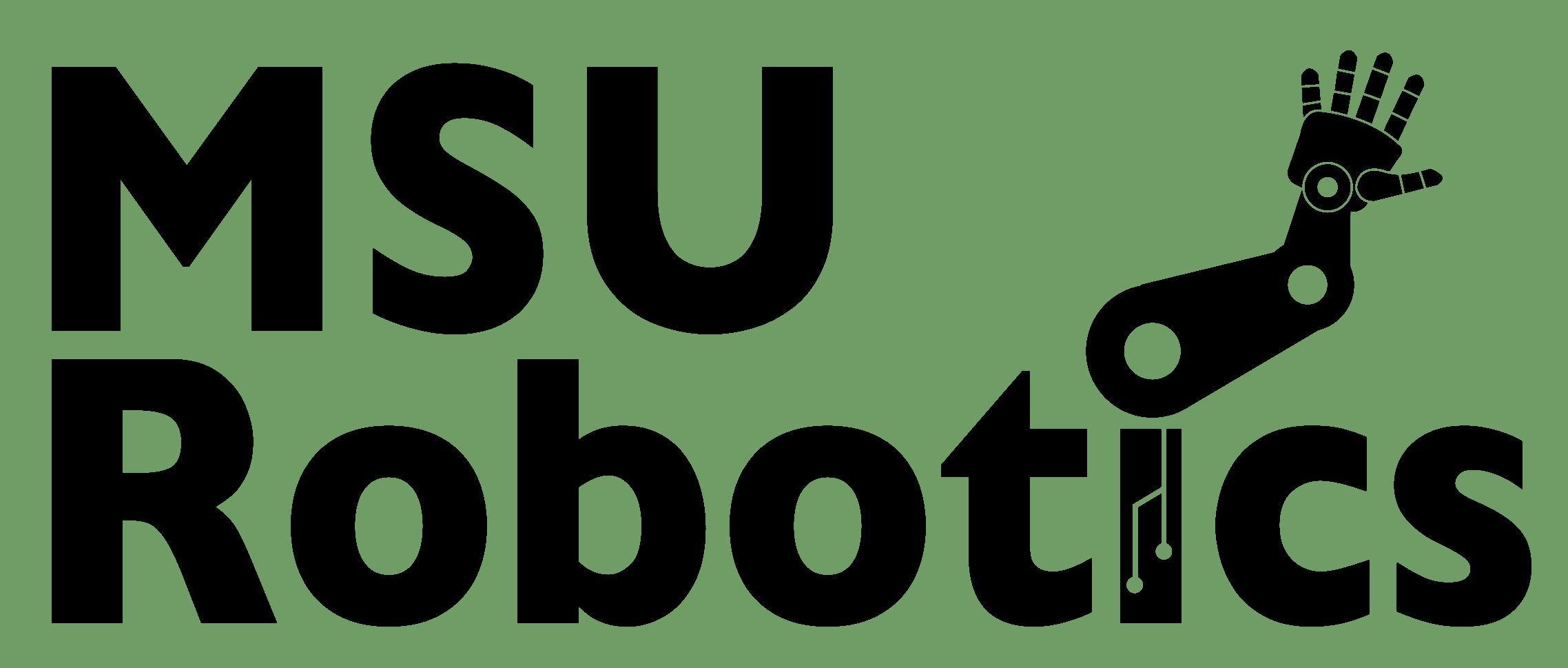Faculty

Bio: Andrew J. Mason received the BS in Physics from Western Kentucky University in 1991, the BSEE from the Georgia Institute of Technology in 1992, and the MS and Ph.D. in Electrical Engineering from The University of Michigan, Ann Arbor in 1994 and 2000, respectively. After starting his academic career at the University of Kentucky, since 2001 Dr. Mason has been with the Department of Electrical and Computer Engineering at Michigan State University in East Lansing, Michigan, where he is currently a Professor and a member of the Neuroscience Program and the Environmental Science and Policy Program. His research explores technologies for augmented human awareness and biomedical applications, including microfabricated structures, mixed-signal and embedded circuits, and machine learning algorithms, and his teaching focuses on embedded smart systems and biomedical instrumentation.
Google Scholar Page: https://scholar.google.com/citations?user=4YUNXeQAAAAJ&hl=en
Webpage: https://www.egr.msu.edu/~mason/

Bio: I am an Assistant Professor with the Electrical and Computer Engineering Department at Michigan State University. Prior to joining Michigan State University, I was a Postdoctoral Research Associate at the Coordinated Science Laboratory, University of Illinois at Urbana-Champaign, working with Professor Tamer Başar. I received the Ph.D. degree in Electrical Engineering from University of Texas at Arlington in 2017, supervised by Professor Frank Lewis. My research interests lie at the intersection of machine learning, optimization and control.

Bio: Daniel Morris leads the 3D Vision Lab which seeks to leverage artificial intelligence for solving difficult sensing problems in the automotive and agricultural domains. His work includes multi-sensor fusion for detecting vehicles and pedestrians, for estimating their motion and for tracking. In the agricultural domain, his team developed automated 3D posture estimation for walking swine and was given the MSU Innovation of the Year award for 2022.
Google Scholar Page: https://scholar.google.com/citations?user=IqXi0YcAAAAJ&hl=en
Webpage: https://www.egr.msu.edu/~dmorris/

Bio: Guoming Zhu received the B.S. and M.S. degrees from Beijing University of Aeronautics and Astronautics (currently Beihang University), Beijing, China, in 1982 and 1984, respectively, and the Ph.D. degree in aerospace engineering from Purdue University, West Lafayette, IN, USA, in 1992. He is currently a Gardner Endowed Chair and Professor with the Department of Mechanical Engineering, Michigan State University, East Lansing, MI, USA. He was a Technical Fellow in advanced powertrain systems with Visteon Corporation, and a Technical Advisor with Cummins Engine Co., Ltd. He has over 40 years of experience related to control theory, engine diagnostics/control, and vibration control. He has authored or co-authored over 280 refereed technical papers and two books, and he holds more than 40 U.S. patents. His current research interests include powertrain system modeling, identification, and closed-loop control, autonomous and connected vehicle control and optimization, urban air mobility, and vibration suppression of aero-structural systems. Dr. Zhu is a Fellow of SAE and ASME. He is an Associate Editor of ASME Dynamic Systems and Control Letter and an Editorial Board Member of the International Journal of Powertrain. He was the Program Chair of the 2018 ASME Dynamic Systems and Control Conference.
Google Scholar Page: https://scholar.google.com/citations?user=iZO10LIAAAAJ&hl=en&oi=ao
Webpage: www.egr.msu.edu/zhug

Bio: Hamidreza Modares received a B.S. degree from the University of Tehran, Tehran, Iran, in 2004, an M.S. degree from the Shahrood University of Technology, Shahrood, Iran, in 2006, and the Ph.D. degree from the University of Texas at Arlington, Arlington, TX, USA, in 2015, all in Electrical Engineering. He is currently an Assistant Professor in the Department of Mechanical Engineering at Michigan State University. Prior to joining Michigan State University, he was an Assistant professor in the Department of Electrical Engineering at Missouri University of Science and Technology. His current research interests include reinforcement learning, safe control, machine learning in control, distributed control of multi-agent systems, and robotics. He is an Associate Editor of IEEE Transactions on Neural Networks and Learning Systems and IEEE Transactions on Systems, Man, and Cybernetics: systems.
Google Scholar Page: https://scholar.google.com/citations?user=xhucCdUAAAAJ

Bio: Hassan K. Khalil received his B.S. and M.S. from Cairo University, Egypt, and his Ph.D. from the University of Illinois, all in electrical engineering. He has been with Michigan State University since 1978. He has consulted for General Motors and Delco Products and published over 120 journal articles on singular perturbation methods and nonlinear control. He is the author of Control Systems: An Introduction, High-Gain Observers in Nonlinear Feedback Control, Nonlinear Control, and Nonlinear Systems; and coauthor of Singular Perturbation Methods in Control: Analysis and Design. Dr. Khalil is a Fellow of the Institute of Electrical and Electronics Engineers (IEEE) and the International Federation of Automatic Control (IFAC). He received the IEEE-CSS George S. Axelby Outstanding Paper Award, the AACC Ragazzini Education Award, the IFAC Control Engineering Textbook Prize, the AACC O. Hugo Schuck Best Paper Award, the AGEP Faculty Mentor of the Year Award, and the IEEE-CSS Bode Lecture Prize. At MSU, he received the Teacher-Scholar Award, the Withrow Distinguished Scholar Award, and the Distinguished Faculty Award, and was named University Distinguished Professor. He served as Associate Editor of the IEEE Transactions on Automatic Control, Automatica, and Neural Networks, and as Editor of Automatica for nonlinear systems and control. He was Program Chair of the 1988 ACC and General Chair of the 1994 ACC.
Google Scholar Page: https://scholar.google.com/citations?user=4fHPl8QAAAAJ&hl=en&oi=ao
Webpage: https://www.egr.msu.edu/~khalil/

Bio: Hayder Radha received the Ph.M. and Ph.D. degrees from Columbia University, in 1991 and 1993, respectively, the M.S. degree from Purdue University, in 1986, and the B.S. (Hons.) degree from Michigan State University (MSU) in 1984, all in electrical engineering. He is currently MSU Foundation Professor of Electrical and Computer Engineering, Director of the Connected and Autonomous Networked-Vehicles for Active Safety (CANVAS) program, and the Director of the Wireless and Video Communications Laboratory (WAVES Lab) at MSU. He was a Principal Member of Research Staff and Fellow at Philips Research (1996-2000). He was also a Distinguished Member of Technical Staff at Bell Laboratories, where he worked from 1986 to 1996. Professor Radha is an IEEE Fellow (2009) and was appointed as a Philips Research Fellow (1998). He received the Amazon Robotics Research Award (2019), Semiconductor Research Consortium Award (2019), Google Faculty Research Award (2014 and 2015), the William J. Beal Outstanding Faculty Award (2015), the Bell Labs Distinguished Member of the Technical Staff Award, the AT&T Bell Labs Ambassador Award, the AT&T Circle of Excellence Award, the MSU College of Engineering Withrow Distinguished Scholar Awards (2003 and 2015), the Microsoft Research Content and Curriculum Award, and three Microsoft Research Awards. He has more than 40 patents granted and more than 300 papers published. His current research areas and interests include autonomous systems’ perception, connected and autonomous vehicles, multimodal sensor fusion, deep learning, information theoretic and signal processing aspects of deep learning and autonomous systems.
Google Scholar Page: https://scholar.google.com/citations?user=GJaAw1EAAAAJ&hl=en
Webpage: https://canvas.msu.edu/group-members
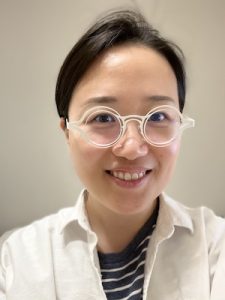
Bio: Hee Rin Lee is an Assistant Professor in the Department of Media and Information at Michigan State University. Her research focuses on Human-Robot Interaction (HRI) to design and evaluate robots for social good. Lee aims to empower socially marginalized groups, such as older adults, family caregivers , union workers, and socioeconomically underserved communities by strengthening their autonomy and effecting positive change. Lee's research has been recognized with a Best Paper Award and four Best Paper Nominations at flagship Human-Computer Interaction (HCI) conferences, including CSCW, HRI, UbiComp, and CHI.
Google Scholar Page: https://scholar.google.com/citations?user=t8lUL5AAAAAJ&hl=en&oi=ao
Webpage: www.heerinlee.com

Bio: Jinxing Li is an assistant professor in the Department of Biomedical Engineering and the Institute for Quantitative Health Science and Engineering. He joined MSU as part of the university’s Global Impact Initiative from Stanford University, where he did his postdoctoral research on engineering soft materials to make miniaturized devices for biomolecular sensing, neuromodulation, and adaptive locomotion. He received his Ph.D. in NanoEngineering at UC San Diego, where he developed a nanorobotic toolbox and pioneered the therapeutic use of micro/nanorobotics. He was a visiting scholar at Bell Labs working on wearable telemedicine devices. He received his B.S. in Huazhong University of Science and Technology and M.S. in Fudan University, both in Electrical Engineering. He is a recipient of Siebel Scholar of Bioengineering, Materials Research Society Graduate Student Award, Dan David Prize Scholarship, American Chemical Society Division of Inorganic Chemistry Young Investigator Award, MIT Technology Review Innovators Under 35, and 30 Rising Leaders in The Life Sciences.
Google Scholar Page: https://scholar.google.com/citations?user=Cd7lEf4AAAAJ&hl=en
Webpage: https://www.labli.net/

Bio: Josh Siegel is an Assistant Professor of Computer Science and Engineering at Michigan State University and an instructor for multiple programs within the Massachusetts Institute of Technology's Open Learning. He received Ph.D., S.M. and S.B. degrees in Mechanical Engineering from MIT. Josh and his automotive companies have been recognized with accolades including the Lemelson-MIT Student Prize and the MassIT Government Innovation Prize. Dr. Siegel's ongoing research develops architectures for secure and efficient connectivity, applications for pervasive sensing including to vehicle diagnostics, and new approaches to partially and fully automated driving.
Google Scholar Page: https://scholar.google.com/citations?user=Y7530HwAAAAJ&hl=en
Webpage: deeptech.egr.msu.edu

Bio: Nilay Kant received his B.Tech. degree in Mechanical Engineering from the Indian Institute of Technology (IIT) Delhi, India, in 2015. He pursued his Ph.D. degree in Mechanical Engineering at Michigan State University, East Lansing, Michigan, USA in from 2015 to 2020. He was a visiting student researcher at the NASA Jet Propulsion Laboratory, Pasadena, California. After getting his doctoral degree, he worked as a Senior Mechatronics and Control Engineer at Nexteer Automotive Corporation, Saginaw, Michigan and as a Senior Controls Engineer at Mainspring Energy, Menlo Park, California, USA. Dr. Kant received the outstanding graduate student award for his doctoral research at Michigan State University. He has published close to 20 papers in top peer reviewed journals and conferences in robotics and control. His research interests include impulsive control, underactuated robots, dynamics and control of mechanical systems and energy efficient technologies. His hobbies are singing, playing flute and cricket.
Research areas: Controls, Robotics, Impulsive Control, Underactuated Systems, Energy Efficient Technologies
Google Scholar Page: https://scholar.google.com/citations?user=v-BjEv4AAAAJ&hl=en&oi=ao

Bio: Philip K. McKinley received the Ph.D. degree in computer science from the University of Illinois at Urbana-Champaign in 1989. Dr. McKinley is currently a Professor in the Department of Computer Science and Engineering at Michigan State University, where he has been on the faculty since 1990. He was a member of technical staff at Bell Laboratories in Naperville, Illinois from 1982-1990, on educational leave of absence 1985-1989. His current research interests include evolutionary robotics, high-assurance software, general-purpose GPUs, and collective/group communication protocols.
Google Scholar Page: https://scholar.google.com/citations?hl=en&user=70oIOKIAAAAJ
Webpage: http://www.cse.msu.edu/~mckinley/

Bio: Rajiv Ranganathan is an associate professor in the Department of Kinesiology. His research interests are in the area of motor learning and bio-mechanics. He is particularly interested in how humans produce skilled and coordinated movement, and how this ability is altered in the context of development, aging, and movement disorders. He uses a combination of both experimental techniques – such as motion capture, robotics and virtual reality – as well as biomechanical modeling and computer simulations to understand the mechanisms underlying the control of human movement. The overarching goal of his research program is to develop novel training paradigms to facilitate motor skill learning and the rehabilitation of movement disorders.
Google Scholar Page: https://scholar.google.com/citations?user=gOOIBfIAAAAJ&hl=en
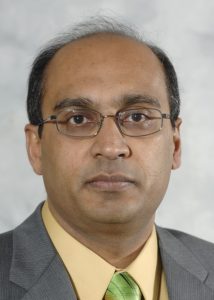
Bio: Ranjan Mukherjee received his PhD from the University of California in 1991. He was a faculty at the Naval Postgraduate School from 1991 to 1996. Since 1996, he has been a faculty at Michigan State University. His research interests lie in the broad area of robotics and mechatronics.
Google Scholar Page:https://scholar.google.com/citations?user=m6fZXgQAAAAJ&hl=en

Bio: Dr. Lin has been focused on fundamental problems associated with the mechanical failures of soft materials and the longevity of soft machines. The research in Lin Research Group at MSU, at the intersection of solid mechanics, polymer science, and advanced manufacturing, aims to understand the processing-structure-property relationships of soft materials, thereby pushing the limit of mechanical and physical properties of soft materials. Our mission is to leverage Extreme Soft Materials for developing next-generation technologies including in-situ bioelectronics, sustainable water harvesting, and efficient polymer recycling.
Google Scholar Page: https://scholar.google.com/citations?user=p6j78JoAAAAJ&hl=en

Bio: Shaunak D. Bopardikar is an Assistant Professor with the Electrical and Computer Engineering Department, and is affiliated with the Center for Connected Autonomous Networked Vehicles for Active Safety (CANVAS) at the Michigan State University. His research interests lie in autonomous motion planning and control, in cyber-physical security and in scalable computation and optimization. He received the Bachelor of Technology (B.Tech.) and Master of Technology (M.Tech.) degrees in Mechanical Engineering from the Indian Institute of Technology, Bombay, India, in 2004, and the Ph.D. degree in Mechanical Engineering from the University of California at Santa Barbara, USA, in 2010. From 2004 to 2005, he was an Engineer with General Electric India Technology Center, Bangalore, India. From 2011 to 2018, he was a Staff Research Scientist with the Controls group of United Technologies Research Center (UTRC) at East Hartford, CT, USA and at Berkeley, CA. Prior to joining UTRC, Dr. Bopardikar worked as a post-doctoral associate at UC Santa Barbara (2010-2011) during which he developed randomized algorithms for solving large matrix games. He is a senior member of the IEEE, has over 70 refereed journal and conference publications and is a co-inventor on 2 U.S. patents. His recognitions include an Air Force Research Laboratory Summer Faculty Fellowship, a National Science Foundation Career Award and an IEEE Technical Committee on Security and Privacy's Best Student Paper Award (as advisor).
Google Scholar Page: https://scholar.google.com/citations?user=-A_CtWMAAAAJ&hl=en
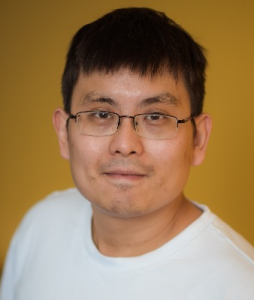
Bio: Sijia Liu received the Ph.D. degree (with All-University Doctoral Prize) in Electrical and Computer Engineering from Syracuse University, NY, USA, in 2016. He was a Postdoctoral Research Fellow at the University of Michigan, Ann Arbor, in 2016-2017, and a Research Staff Member at the MIT-IBM Watson AI Lab in 2018-2020. His research focuses include scalable and trustworthy machine learning, optimization theory and methods, computer vision, and computational biology. He received the Best Student Paper Award at the 42nd IEEE International Conference on Acoustics, Speech and Signal Processing (ICASSP’16), and the Best Paper Runner-Up Award at the 38th Conference on Uncertainty in Artificial Intelligence (UAI’22). He has published over 60 papers at top-tier ML/CV conferences. He is currently a Senior Member of IEEE, a Technical Committee (TC) Member of Machine Learning for Signal Processing (MLSP) in the IEEE’s Signal Processing Society, and an affiliated faculty at the MIT-IBM Watson AI Lab, IBM Research. He has organized a series of Adversarial ML workshops in KDD’19-’22 and ICML’22-23, and provided tutorials on Trustworthy and Scalable ML in CVPR’20, NeurIPS’22, AAAI'23, and CVPR'23.
Google Scholar page: https://scholar.google.com/citations?user=C7dO_UgAAAAJ&hl=en
Webpage: https://lsjxjtu.github.io/index.html

Bio: Dr. Tong (Tony) Gao is an Associate Professor at the Department of Mechanical Engineering and Department of Computational Mathematics, Science, and Engineering at Michigan State University, where he directs the Complex Fluids Group. He obtained his Ph.D. degree in Mechanical Engineering at the University of Pennsylvania in 2012. Then he worked as a research scientist in the Applied Mathematics Lab at the Courant Institute of Mathematical Sciences of New York University. Dr. Gao works in the interdisciplinary areas of soft condensed matter, fluid mechanics, and materials via mathematical modeling and high-performance computing. His expertise lies in constructing advanced computational mechanics models for fluid-solid systems with high complexities (e.g., many-body interactions) and nonlinearity (e.g., fluid/elastic structure interactions), and developing scalable simulation tools to promote data-driven, physics-informed studies. Dr. Gao received the NSF CAREER award in 2020. The current focused research topics include bioactive matter, soft robotics, and patient-specific medical models.
Webpage: https://www.egr.msu.edu/~gaotong/
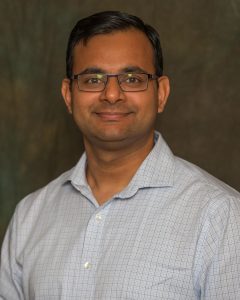
Bio: Vaibhav Srivastava received the B.Tech. degree (2007) in mechanical engineering from the Indian Institute of Technology Bombay, Mumbai, India; the M.S. degree in mechanical engineering (2011), the M.A. degree in statistics (2012), and the Ph.D. degree in mechanical engineering (2012) from the University of California at Santa Barbara, Santa Barbara, CA.
Dr. Srivastava is currently an Associate Professor of Electrical and Computer Engineering at Michigan State University. He is also affiliated with Mechanical Engineering, Cognitive Science Program, and Connected and Autonomous Networked Vehicles for Active Safety (CANVAS). He served as a Lecturer and Associate Research Scholar with the Mechanical and Aerospace Engineering Department at Princeton University, Princeton, NJ from 2013-2016. He serves on the IEEE Control System Society conference editorial board since 2018. He received the best paper award (as coauthor) at the 2014 European Control Conference. His research focuses on Cyber Physical Human Systems with an emphasis on mixed human-robot systems, networked multi-agent systems, aerial robotics, and connected and autonomous vehicles.
Google Scholar Page: https://scholar.google.com/citations?user=L_K_w18AAAAJ&hl=en
Webpage: https://www.egr.msu.edu/~vaibhav/
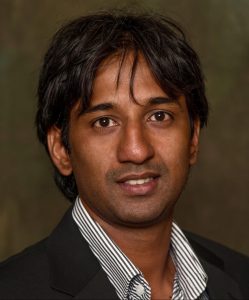
Bio: Vishnu Naresh Boddeti is an Associate Professor in the computer science department at Michigan State University. He received a Ph.D. degree in the Electrical and Computer Engineering program at Carnegie Mellon University in 2013. His research interests are in Computer Vision and Machine Learning. He received the best paper awards at BTAS 2013, ACCV 2018, GECCO 2019, SMASIS 202, IJCB 2022 and IJCB 2023.
Google Scholar Page: https://scholar.google.com/citations?user=JKcrO9IAAAAJ&hl=en&oi=ao
Webpage: http://hal.cse.msu.edu

Bio: Dr. Tan received his Bachelor's and Master's degrees in automatic control from Tsinghua University, Beijing, China, in 1995, 1998, respectively, and his Ph.D. in electrical and computer engineering from the University of Maryland in 2002. From September 2002 to July 2004, he was a Research Associate with the Institute for Systems Research (ISR) at the University of Maryland. In August 2004 he joined the Department of Electrical and Computer Engineering at Michigan State University, where he is currently an MSU Foundation Professor and the Richard M. Hong Endowed Chair. His research interests include underwater robotics, soft robotics, smart materials, and control systems. Dr. Tan's research has been supported by National Science Foundation, Office of Naval Research, National Institutes of Health, U.S. Geological Survey, the Great Lakes Fishery Commission, Toyota, Naval Research Lab, U.S. Department of Transportation, and MSU Foundation, among others.
Dr. Tan is a Fellow of IEEE and ASME. He received an NSF CAREER Award in 2006, MSU Teacher-Scholar Award in 2010, Withrow Distinguished Scholar Award (senior category) from MSU College of Engineering in 2018, and Distinguished Alumni Award from Department of Electrical and Computer Engineering at University of Maryland in 2018. He has received several Best Paper Awards. He has served as a Senior Editor for IEEE/ASME Transactions on Mechatronics (TMECH), an Associate Editor/Technical Editor for TMECH, Automatica, and International Journal of Advanced Robotic Systems, and a guest editor for six journal special issues or sections. Dr. Tan has served on the organizing or program committees for a number of international conferences, including serving as the Program Chair for the 15th International Conference on Advanced Robotics (ICAR'2011), General Chair for the 2018 ASME Dynamic Systems and Control Conference (DSCC'2018), Program Chair for the 2020 IEEE/ASME International Conference on Advanced Intelligent Mechatronics (AIM'2020), and General Chair for 2023 American Control Conference (ACC'2023). Dr. Tan is also keen to integrate his research with educational and outreach activities, including serving as Director of an NSF-funded Research Experiences for Teachers (RET) Site program at MSU from 2009 – 2016 and Curator of a robotic fish exhibit at MSU Museum from April 2016 to January 2017.
Google Scholar Page: https://scholar.google.com/citations?user=tsJSW2MAAAAJ&hl=en
Webpage: https://www.egr.msu.edu/~xbtan/

Bio: Dr. Xiaoming Liu is the MSU Foundation Professor, and Anil and Nandita Jain Endowed Professor at the Department of Computer Science and Engineering of Michigan State University (MSU). He received Ph.D. degree from Carnegie Mellon University in 2004. Before joining MSU in 2012 he was a research scientist at General Electric (GE) Global Research. He works on computer vision, machine learning, and biometrics especially on face related analysis and 3D vision. Since 2012 he helps to develop a strong computer vision area in MSU who is ranked top 15 in US according to the 5-year statistics at csrankings.org. He has been Area Chairs for numerous conferences, the Co-Program Chair of BTAS’18, WACV’18, IJCB’22 and AVSS’22 conferences, and Co-General Chair of FG’23 conference. He is an Associate Editor of IEEE Transactions on Pattern Analysis and Machine Intelligence. He has authored more than 200 scientific publications, and has filed 29 U.S. patents. His work has been cited over 20000 times according to Google Scholar, with an H-index of 71. He received the 2018 and 2023 Withrow Distinguished Scholar Awards from MSU. He is a fellow of The Institute of Electrical and Electronics Engineers (IEEE) and International Association for Pattern Recognition (IAPR). His research has been widely reported in prominent national and international news outlets including the Wall Street Journal, CNBC, CNET, Engadget, Fortune, the Mac Observer, MSU Today, New Scientist, Silicon Angle, VentureBeat, and the Verge. More information of Dr. Liu’s research can be found at http://cvlab.cse.msu.edu
Google Scholar page: https://scholar.google.com/citations?hl=en&user=Bii0w1oAAAAJ

Bio: Dr. Yu Kong is now an Assistant Professor directing the ACTION Lab at Michigan State University. Prior to joining MSU, he was an Assistant Professor at the Rochester Institute of Technology, and a postdoctoral research associate at Northeastern University and University at Buffalo, SUNY. Dr. Kong's research in Computer Vision and Machine Learning has been supported by the National Science Foundation, Army Research Office, and Office of Naval Research, etc. His work has been publishing on top-tier conferences and transactions in the AI community such as CVPR, ECCV, ICCV, T-PAMI, IJCV, etc. He is an Associate Editor for Springer Journal of Multimedia Systems, and also serves as reviewers and PC members for prestige journals and conferences, including T-PAMI, T-IP, T-NNLS, T-CSVT, CVPR, ICLR, AAAI, and IJCAI.
Google Scholar Page: https://scholar.google.com/citations?user=wXA8nb4AAAAJ&hl=en
Webpage: https://www.egr.msu.edu/~yukong/

Bio: Dr. Lu is an Assistant Professor in Biosystems Engineering at MSU with research interests in in-field & postharvest sensing and automation, AI & robotics in agriculture, imaging-based phenotyping.
Google Scholar Page: https://scholar.google.com/citations?user=mC5ZTvEAAAAJ&hl=en&oi=ao
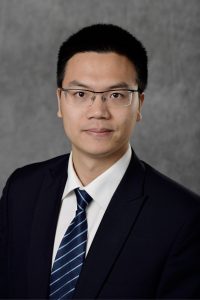
Bio: Dr. Zhaojian Li is an Assistant Professor in the Department of Mechanical Engineering at Michigan State University. He obtained M.S. (2013) and Ph.D. (2015) in Aerospace Engineering (flight dynamics and control) at the University of Michigan, Ann Arbor. As an undergraduate, Dr. Li studied at Nanjing University of Aeronautics and Astronautics, Department of Civil Aviation, in China. Dr. Li worked as an algorithm engineer at General Motors from January 2016 to July 2017. His research interests lie in the intersection between control theory and machine learning, with applications to intelligent vehicles and robotics. His research has been funded by National Science Foundation, National Institute of Health, US Department of Agriculture, Army, Office of Naval Research, Ford, DENSOR, T-Mobile, among others. He is a senior member of IEEE and a recipient of the NSF CAREER award.
Google Scholar Page: https://scholar.google.com/citations?user=3TUhNa0AAAAJ&hl=en
Webpage: https://www.egr.msu.edu/rival/
